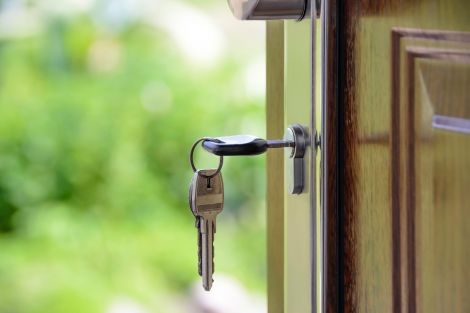Housing / Plans to double council tax for second home owners unlikely to tackle deeper housing issues, politicians say
SCOTTISH Government plans to enable local authorities to charge significantly more for council tax on second homes is unlikely to solve housing issues in Shetland, according to local politicians.
The government is currently consulting on the idea, with first minister Humza Yousaf saying it could increase the number of affordable homes in the country.
He said the proposals “aim to strike a balance between good housing supply and helping communities to thrive and benefit from tourism”.
The government is asking for views on a proposal to offer councils the power to charge up to double the full rate of council tax for second homes, bringing it into line with long-term empty homes.
This consultation is also seeking views on whether the current ability for councils to charge a 100 per cent premium on long-term empty homes should be increased.
It will also ask for views on whether there should be changes to the definition of when a property offering self-catered accommodation becomes liable for non-domestic rates.
Government statistics show that in 2022 there were 723 “second homes and long-term empty properties” in Shetland. This is a significant increase over time, considering in 2006 just 403 were registered.
The 2022 figure is broken down into 552 long-term empty properties and 171 second homes.
While Shetland Islands Council leader Emma Macdonald said it the government consultation was an “important step”, she felt it would not solve the housing issues in the isles.
These are issues which have regularly seen people find it hard to secure affordable accommodation, including workers moving up to Shetland for new jobs.
Meanwhile local MSP Beatrice Wishart said Shetland is facing a “housing crisis which is pushing people away from the isles and risking the long-term sustainability of communities”.
She believes that the government proposals would not put off wealthy people from having second homes.
Become a member of Shetland News
“I have had representations about the lack of availability of affordable housing,” Wishart said.
“It is especially acute for those who can’t afford to buy or pay high private rents, for our young people, and those who want to stay in areas outwith Shetland’s ‘central belt’.
“Paying a little more council tax won’t deter wealthy people, especially when they have paid out big sums for their second home.
“Scottish Liberal Democrats would like to see local authorities given appropriate powers to address second homes for areas where there is evidence of problems in order to make a real difference.”
The consultation is a joint one which also includes local government association COSLA.
Its resources spokesperson Councillor Katie Hagmaan said local government is committed to supporting access for everyone to an affordable home.
“We also welcome the greater fiscal empowerment for councils to reflect local circumstances this would introduce,” she said.
“Any additional funding created by these changes under consultation will enable councils to invest in local needs and support sustainable communities.”
Currently, a default 50 per cent council tax discount is applied to second and empty homes with councils then able to reduce the discount available.
A 100 per cent premium (double the full rate) can be applied to homes that have been empty for more than 12 months.
A property is considered self-catered accommodation and therefore liable for non-domestic rates if it is let for a total of 70 nights and is available to let for 140 nights in a financial year.
The government consultation says: “We recognise that second homes and short-term lets bring benefits to those who own them and the tourism businesses and local economy that they support.
“We also recognise that the reasons that homes may be left empty for long periods can be complex.
“It is also important that where these kinds of ownership patterns impact on the availability of homes to meet local needs and on community sustainability, that we take action to pursue a fair balance.”
It said the “the aim is to encourage more residential accommodation to be used as homes for living in and for these to be occupied for more of the time” – but it acknowledges local areas need to decide how to achieve the right balance, and that it is not about a one size fits all solution.
Become a member of Shetland News
Shetland News is asking its many readers to consider paying for membership to get additional features and services: -
- Remove non-local ads;
- Bookmark posts to read later;
- Exclusive curated weekly newsletter;
- Hide membership messages;
- Comments open for discussion.
If you appreciate what we do and feel strongly about impartial local journalism, then please become a member of Shetland News by either making a single payment, or setting up a monthly, quarterly or yearly subscription.

















































































